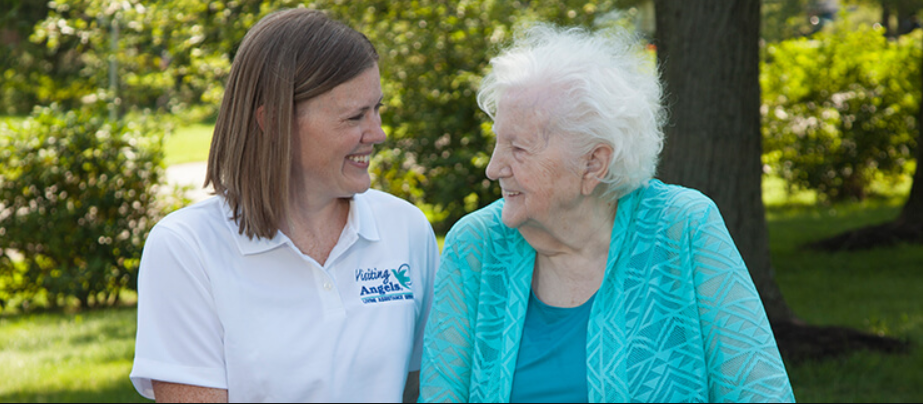Alzheimer’s Care Challenges for Covina Families: Handling Dementia & Anger
Alzheimer’s Care Challenges: Handling Dementia & Anger
 Handling anger is one of the biggest challenges when caring for a person who’s suffering from Alzheimer’s or another form of dementia. While almost everybody shows some form of aggression every now and again, Alzheimer’s and dementia can make anger issues much worse or develop anger issues in people who previously had none. Studies show that anger issues generally worsen the more severe an Alzheimer’s or dementia sufferer’s condition becomes.
Handling anger is one of the biggest challenges when caring for a person who’s suffering from Alzheimer’s or another form of dementia. While almost everybody shows some form of aggression every now and again, Alzheimer’s and dementia can make anger issues much worse or develop anger issues in people who previously had none. Studies show that anger issues generally worsen the more severe an Alzheimer’s or dementia sufferer’s condition becomes.
Managing anger from dementia sufferers can be difficult. In fact, it often means reacting against your first instincts. That said, sound anger prevention and coping strategies can make Alzheimer’s care much easier for loved ones and caregivers alike.
"Knowing how to detect, defuse, and prevent anger is one of the most important skills for Alzheimer’s care providers,” says Larry Meigs, CEO of Visiting Angels. “It’s one of the skills we value most in our Alzheimer’s caregivers.”
Learning About Alzheimer’s & Anger
The first step to dealing with anger in Alzheimer’s and dementia sufferers is understanding where their anger comes from. While angry or aggressive behavior can sometimes seem spontaneous in those suffering from mental or memory disorders, a root cause – or multiple causes – can often be determined. Having a better understanding of the triggers and causes of your loved one’s anger will help you prevent aggressive behavior and make it easier to defuse angry situations.
Anger in Alzheimer’s and dementia sufferers can be related to:
- Physical Triggers. The person may be angry due to discomfort, soreness, dizziness, nausea, or exhaustion – or they may become frustrated by the inability to do simple physical tasks.
- Emotional Triggers. The person may become angry from over-stimulation or boredom. Feelings of being overwhelmed, lonely, or bored can all trigger anger or aggression.
- Mental Triggers. Confusion is one of the leading causes of anger and aggression in Alzheimer’s and dementia sufferers. Confusion can be triggered by lost trains of thought, mixed up memories, or a sudden change in the environment, such as a change from one caregiver to another.
Preventing & Controlling Anger in Senior Care
The more you are able to understand your loved one’s aggressive triggers, the easier it will become to avoid those triggers and prevent anger outbursts. That said, it isn’t always possible to avoid certain triggers. Because of this, it is important that you know how best to handle outbursts of anger, including both verbal and physical aggression.
Here are some guidelines for managing anger outbursts in Alzheimer’s care recipients:
- If you can determine the cause of their distress, see if it is possible to alleviate or solve the issue. This can stop an issue from becoming worse, and often helps dispel their anger.
- Avoid physical contact and NEVER react to violence with force, unless your personal safety or the safety of someone else is threatened. Trying to take physical control of a dementia sufferer often increases their anger and aggression.
- Use a calm tone of voice and avoid outward displays of distress, upset, anger, or fear. These signs are often detected by the angry person and will likely make their own distress and agitation worse.
- If possible, remove yourself from the room or situation. Give yourself and the person time to calm down. This will make it easier for you to react and may defuse or dispel their anger.
- Be kind and reassuring at all times. Do not attempt to argue or reason with the person. Instead, be sympathetic and accepting of their anger and frustration.
Take care to remember that sufferers of Alzheimer’s, dementia, and other memory disorders should not be punished or chastised for anger or aggressive outbursts. This is one of the most common mistakes made by loved ones and untrained caregivers. Remember: your loved one is suffering from a disorder over which they have no control. What’s more, they are unlikely to understand why they are being punished or reprimanded. In fact, many sufferers forget their outbursts immediately or soon after they happen.
Don't Hesitate to Ask for Help
If you find that you need support in handling a loved one’s dementia or Alzheimer’s care, help from an Alzheimer’s care provider can be invaluable. Over the 20 years that Visiting Angels Glendora has served Covina and the surrounding area our cases of Dementia and Alzheimers has double. Our care givers have decades of experiance and special training in Dementia care. To discuss in-home Alzheimer’s care, call your local Visiting Angels Glendora.
If you are concerned about sudden changes in your loved one’s behavior or have questions about caring for your loved one, please also contact your loved one’s healthcare provider for information and support.
Visiting Angels Glendora can help and our amazing caregivers help can keep your family safe. We serve the Foothill communities and have cared for Glendora, San Dimas, Monrovia and the rest of San Gabriel Valley compassionately for 20 years. We are experts in helping keep your loved ones active and happy and we would love to help. 626-852-3302 | www.VisitingAngels.com/Glendora.
Visiting Angels Glendora help and our amazing caregivers help keep your family safe. We serve the Foothill communities and have cared for Glendora, San Dimas, Monrovia and the rest of San Gabriel Valley compassionately for 20 years. We are experts in helping keep your loved ones active and happy and we would love to help. 626-852-3302 | www.VisitingAngels.com/Glendora.

